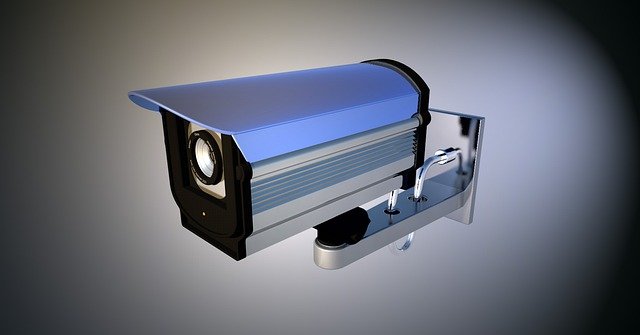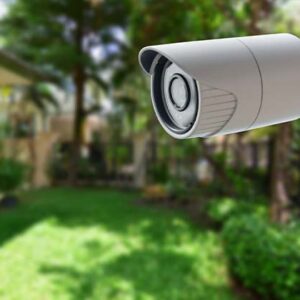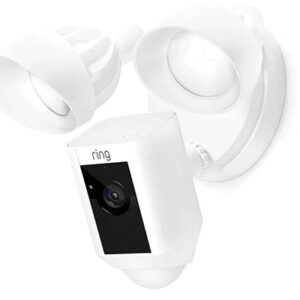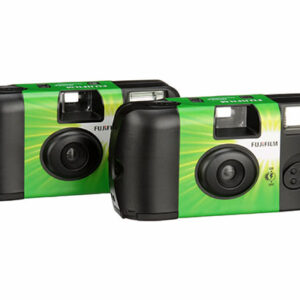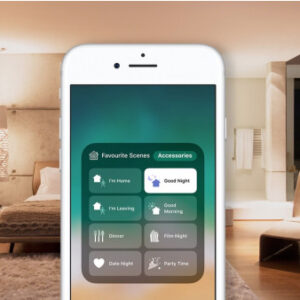Do security cameras have audio?
The answer is yes. You can buy a security system that also records audio in addition to video. However, unlike more recent cameras, the majority of the older CCTV cameras you see do not have an audio feature built into the camera itself.
An add-on microphone is typically included with older security cameras that have audio recording capabilities. In contrast, more sophisticated audio surveillance cameras come with built-in sound capabilities. These contemporary cameras come in both two-way and one-way audio varieties.
You can use the camera to communicate with someone on the other end thanks to two-way audio systems. Imagine having the ability to confront someone who is invading your property after hours. You can see how potent the modern audio camera features are from that.
Table of Contents
Do Security Cameras Have Audio?
If someone were to inquire, “Can security cameras record audio?”
As far as camera technology is concerned, the answer is unquestionable YES.
The IP cameras have built-in microphones that can record audio and video and are sensitive enough to pick up sound inside the monitoring zones.
For some security cameras that support audio input, such as the outdoor security camera Reolink RLC-423, you can also attach an external microphone to record sound.
Security cameras with audio unquestionably provide you with advantages that are unmatched. For instance, without physically being there, you can listen to your child, pets, or guests from a distance.
Can Security Cameras Record Audio Legally?
The laws governing audio monitoring vary from state to state and are typically more stringent than those governing video monitoring.
And that clarifies why some security cameras do not have audio.
Here are some things you should look into to determine if it’s illegal to have security cameras with sound in your area.
Where Are The Voice-recording Cctv Cameras Installed?
Without a doubt, your CCTV cameras can legally record audio if they are installed in your home for security purposes.
Regarding the areas where people expect to have privacy, such as bedrooms, dressing rooms, restrooms, etc., both audio and video recording are not allowed.
The legality of audio recording in public places can be more difficult, and you’ll also need to take into account the following factors.
For Your Reference: Is it legal for a boss to make audio recordings at work? The solution can be found by reading this post.
Is The Subject In Agreement With Audio Recording?
CCTV cameras are not permitted to record sound without the consent of at least one party involved in the conversation, in accordance with the privacy laws of most states.
Your security cameras cannot legally record sound unless all parties have given their consent in certain states, including California, Connecticut, Delaware, Florida, Hawaii, Illinois, Kansas, Maryland, Massachusetts, Michigan, Montana, Nevada, New Hampshire, Pennsylvania, Utah, and Washington.
Additionally, in the majority of states, posting signs that indicate audio recording is happening can also be taken as consent. For instance, small business owners frequently post signs indicating the use of security cameras in retail stores.
The most trustworthy way to find out if security cameras can have audio is to research relevant local, state, and federal laws or to speak with an attorney directly before you install any cameras.

Types Of Security Cameras With Audio Recorder
- Add-on microphone-equipped security cameras. Previously, this wasn’t an inherent feature of many security cameras with audio recording. Instead, you must use the camera’s external microphone input jack to attach a microphone.
- Analog audio surveillance devices. Traditional cameras include audio and analog. To the on-site DVRs, they cable-transmit the audio signals that were recorded. As a result, the DVR is the only way to access the audio recordings.
- With two-way audio, and a security camera Two-way audio systems include a built-in speaker and microphone. This makes it possible for you to communicate with those on the other end of the line even when you are not physically present.
- Security cameras with in-built audio features. An audio feature is built into most modern cameras.
- IP audio security cameras A camera of this kind records audio signals and uploads them to the cloud. Basically, it’s a digital camera. It can transmit signals using wired or wireless IP camera network connections. The network has storage for the audio recordings. This makes the data accessible through various digital devices.
What Kind Of Audio Can Security Cameras Record?
You have another task to complete now that you are an expert on the topic of “how to tell if security cameras have audio.” It’s time to determine the maximum range of sound recording for security cameras. You shouldn’t be alarmed the moment you notice a camera has a sound recorder. The camera may no longer be able to record your voice due to your distance from it, for all you know. Most high-quality security cameras have an average audio range of 6 meters. The distance between the recorder and the subject is frequently adequate because security cameras are typically mounted from higher locations. Therefore, there’s a good chance that you won’t be audio-recorded if you’re not right next to where the security camera is located. You ought to feel at ease as a result.
The Advantages Of Security Cameras Have Audio
The use of one-way or two-way audio as a component of your security system has enormous business advantages. To improve your surveillance capabilities, one-way security cameras with audio recording can record crucial vocal data. You can learn more specifics about what’s going on in your company by integrating recordable audio capabilities. Your security teams’ capabilities may also be expanded by it.
Cameras of today are becoming more intelligent. Consider a camera that can flag both sounds and visuals to warn you about an issue. For example, a cunning intruder might be able to figure out where your cameras are placed and try to find blind spots, but they won’t be able to conceal the noises they make while on your property. One benefit of a security camera system with audio recording is that.
Imagine your video surveillance system as having a brain, eyes, ears, and other senses, just like us, that it can use to identify threats. Even when a camera is pointed in a different direction, powerful video analytics on today’s contemporary IP cameras can detect and identify sounds.
Screaming, breaking glass, or a gunshot can all be detected by modern sound detection software, which can also alert the user. They can also sound an alarm in response to a particular audio pattern. As opposed to a continuous audio stream, you could enable audio analytics, which alerts and records the specific incident while operating in buffer mode. Should you require it in the future, this provides strong forensic evidence.
In order to improve the effectiveness of cameras, two-way audio has also developed over time. Today, in addition to recording sound, you can also use visual and audio deterrents to proactively warn off intruders.
Intruders can be scared away by 97% using audio and visual deterrents. Using the two-way audio capabilities, you can communicate with an intruder by speaking to them and warning them that the police will arrive soon if they don’t leave right away.
You can pan and zoom the lens thanks to the capabilities of smart cameras. However, there are also legal repercussions to using a security camera system with audio recording capabilities. What are the dangers of using these tools?
The Risks Of Security Cameras Have Audio
In most cases, it’s against the law to record audio while doing surveillance. Federal wiretap laws typically forbid recording audio from surveillance unless both parties are aware that it is happening.
There are a few exceptions for obvious reasons in locations where a person may be getting undressed, such as a locker room, even though the majority of states permit audio and video capture. Remember that each state has its own restrictions on audio and video surveillance. Before making use of these devices, businesses must abide by state laws.
To ensure safety and deter theft, many employers videotape their staff members. As long as the employees are aware that their conversations are being recorded, this appears to be legal under the majority of state laws. However, the fact that every state sets its own laws only makes the situation more complicated.
According to laws in Connecticut and Delaware, for instance, companies are required to inform both clients and staff if they have any video surveillance that might violate clients’ expectations of privacy, like in a restroom or changing area.” What about the audio component of security surveillance, even though these rules appear to favor video more? By state, this also varies.
Ohio is yet another instance. According to the Ohio Revised Code, it is unlawful to record any “wire, oral, or electronic communication.”” It does not specifically state that you cannot use an audio surveillance camera to record criminal activity but only to monitor and react to it.
Conclusion
So, do security cameras have audio?
It is possible to buy security cameras that can record both audio and video. These cameras come in a variety of models that are sold in stores.
The advancement of camera technology is ongoing. Why don’t all security cameras have audio is something you might be wondering.” It’s because there are some legal issues at play. In most cases, there shouldn’t be a problem if your security camera records sound inside your house. All of this is a component of your security measures. Installing audio-equipped security cameras in locations where people expect privacy, like bathrooms, is to be avoided.

